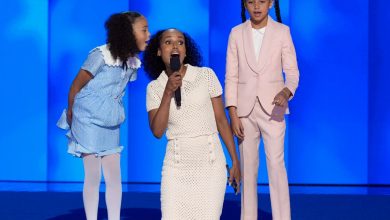A Spelling Bee champion is crowned. The final spell-off is controversial
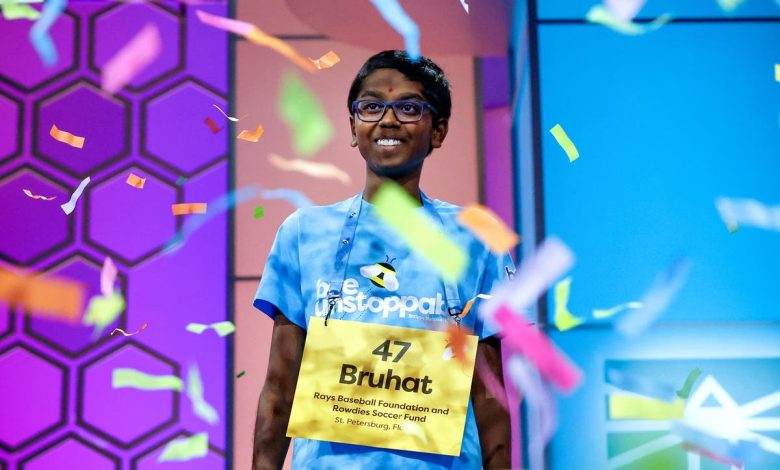
This year’s Scripps National Spelling Bee champion has been crowned.
Bruhat Soma said he was nervous during the idle hours as he waited to take the stage, and he felt even more pressure to perform given that he hadn’t lost a spelling bee in eight months.
He never showed any nerves in front of the microphone, though, and when the bee abruptly went to a lightning-round tiebreaker known as a “spell-off,” he could not have been more comfortable.
The 12-year-old seventh-grader from Tampa, Florida, blitzed through 30 words in 90 seconds on Thursday night, sounding more like an auctioneer than the best speller in the English language, and judges determined that he spelled 29 of them correctly — nine more than his competitor, Faizan Zaki.
As the champion, Bruhat receives a trophy and more than $50,000 in cash and prizes.
He rehearsed the spell-off every day for six months.“I was pretty confident that I had a chance at winning because I’ve been working so hard,” Bruhat said, explaining his rationale for spending so much time on a tiebreaker he might not even need. “And I really wanted to win. That’s why I practiced the spell-off so much.”
Had he known the way Scripps would conduct the final rounds, he might have spent even more time on his speed training.
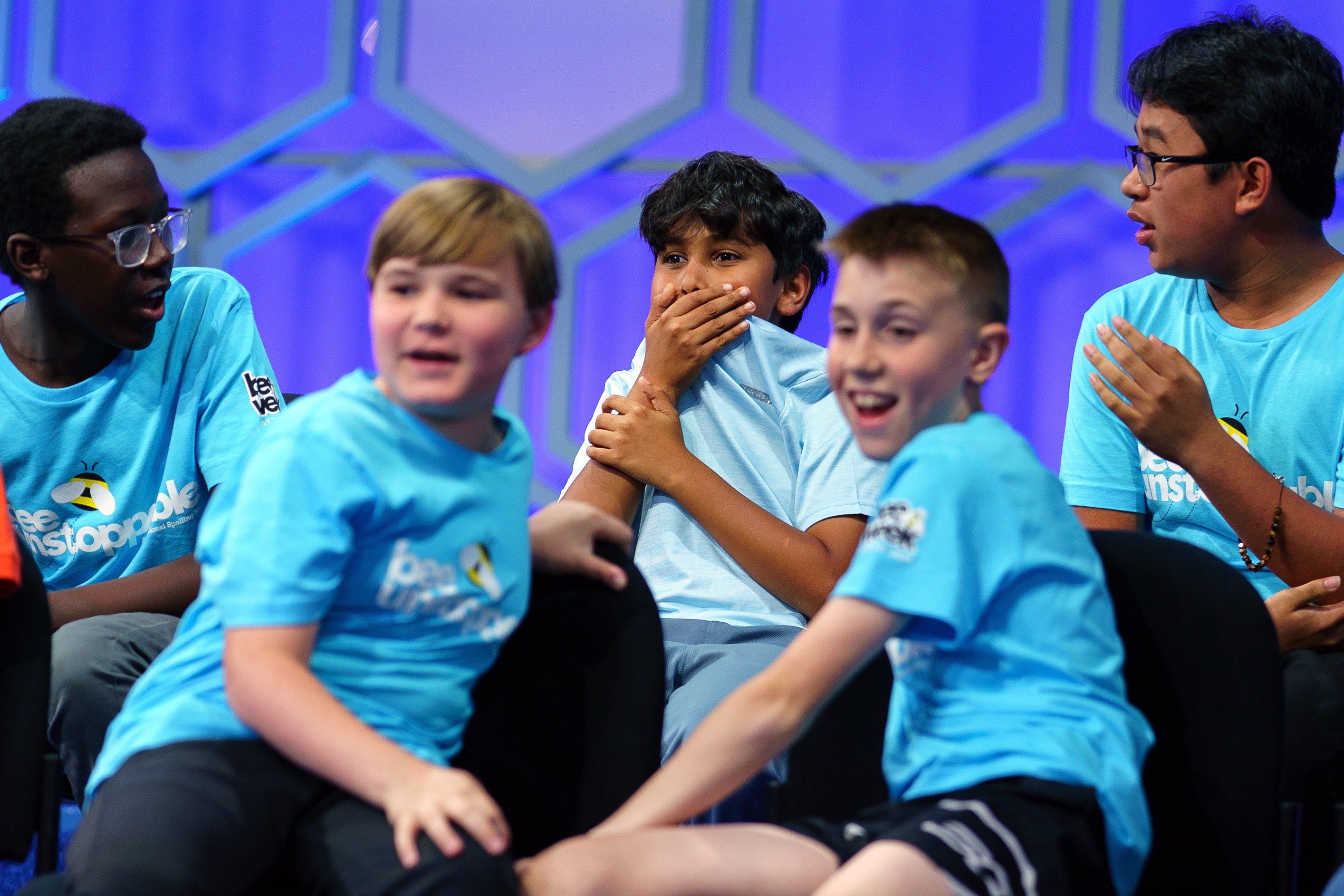
There was no doubt Bruhat was a worthy champion, but the conclusion left many observers disappointed and confused.
“I don’t think it was a good bee,” said Dev Shah, last year’s champion. “It’s not about spelling as many words as you can in 90 seconds. That’s not what the spelling bee is.”
The finals began with eight spellers, the fewest since 2010, and it was clear that Scripps was trying to fill the 2-hour broadcast window on Ion, a network owned by the Cincinnati-based media company. Frequent, lengthy commercial breaks allowed spellers to mill about at the side of the stage, chatting with their coaches, relatives and supporters.
And then bee officials announced it was time for the tiebreaker before Bruhat and Faizan were even given a chance to compete in a conventional round.
“I do wish that we would have gotten to see more of a duel between them,” said Charlotte Walsh, who finished runner-up to Dev in 2023.
The competition rules state that a spell-off is used in the interest of time, but Scripps still squeezed in another commercial break between the tiebreaker and the announcement of Bruhat’s victory.
“It felt so forced and manufactured,” Dev said.
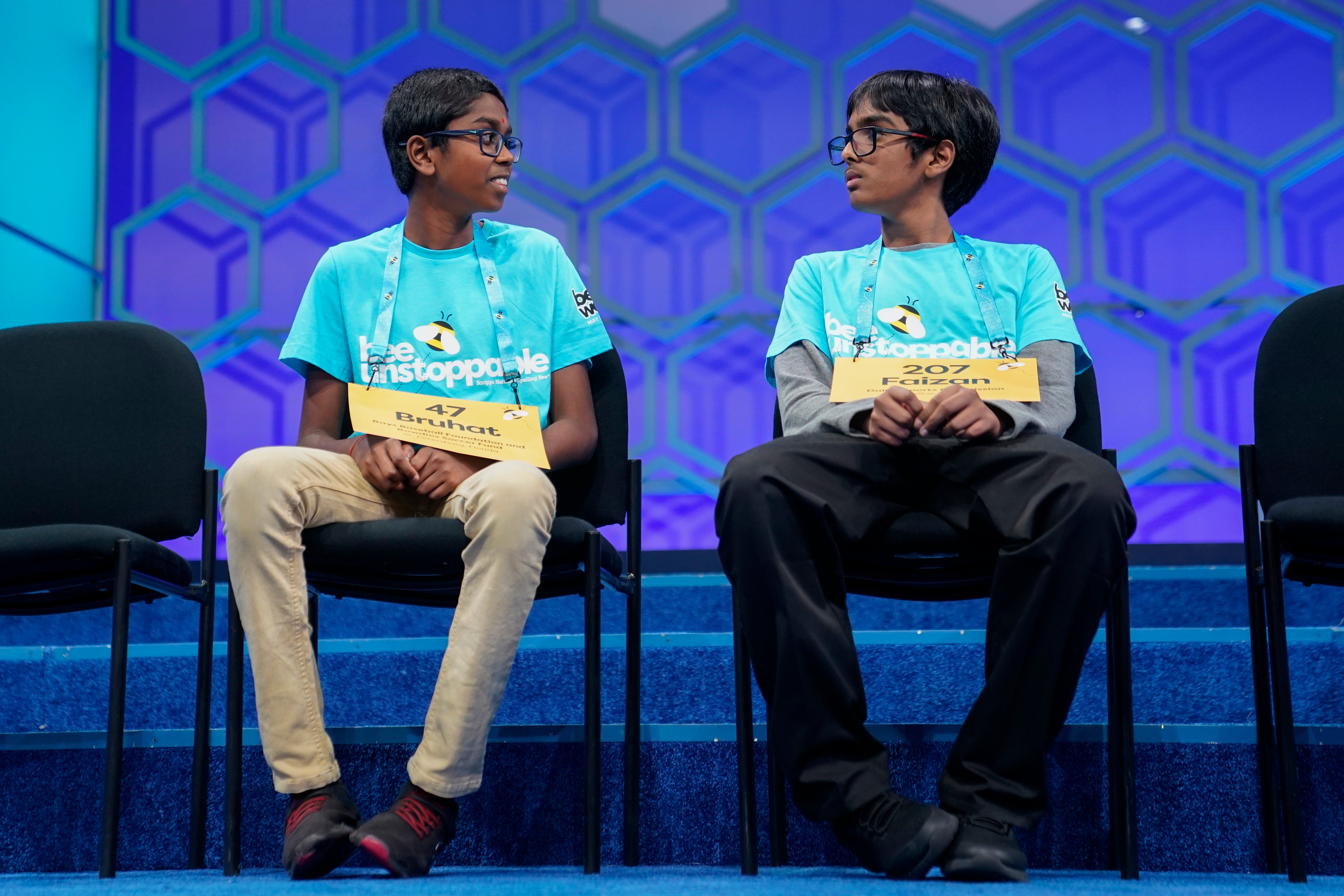
Scripps said Bruhat’s winning word was “abseil,” defined as “descent in mountaineering by means of a rope looped over a projection above.”
In the tiebreaker — which was used once before, when Harini Logan won in 2022 — the winning word is the one that gives a speller one more correct word than their competitor.
Shortly after Bruhat was showered with confetti and handed the trophy, Faizan was in tears at the side of the stage, accepting hugs from other spellers. A few minutes earlier, he had embraced his good friend, Shrey Parikh, after Shrey was eliminated.
Faizan spelled his final word in the regular competition in walk-off fashion, dashing through “nicuri” without asking a single question and striding back to his seat, a moment that recalled Shourav Dasari’s mic-drop spelling of “Mogollon” in 2017.
But the 12-year-old sixth-grader from Allen, Texas, wasn’t given a chance to do it again.“I definitely think they should have been given an opportunity to have some conventional spelling rounds before they defaulted to the spell-off,” said Scott Remer, one of four coaches who worked with Faizan.
Coming into the competition, Bruhat won the Words of Wisdom bee hosted by Remer, a former speller and study guide author. He won the SpellPundit bee organized by that study guide company. And he won the first-ever online bee emceed by Dev, last year’s Scripps champion.“I always want to win. And this was, like, my main goal,” Bruhat said. “It didn’t matter if I won all those other bees. This is what I was aiming for. So I’m just really happy that I won this.”
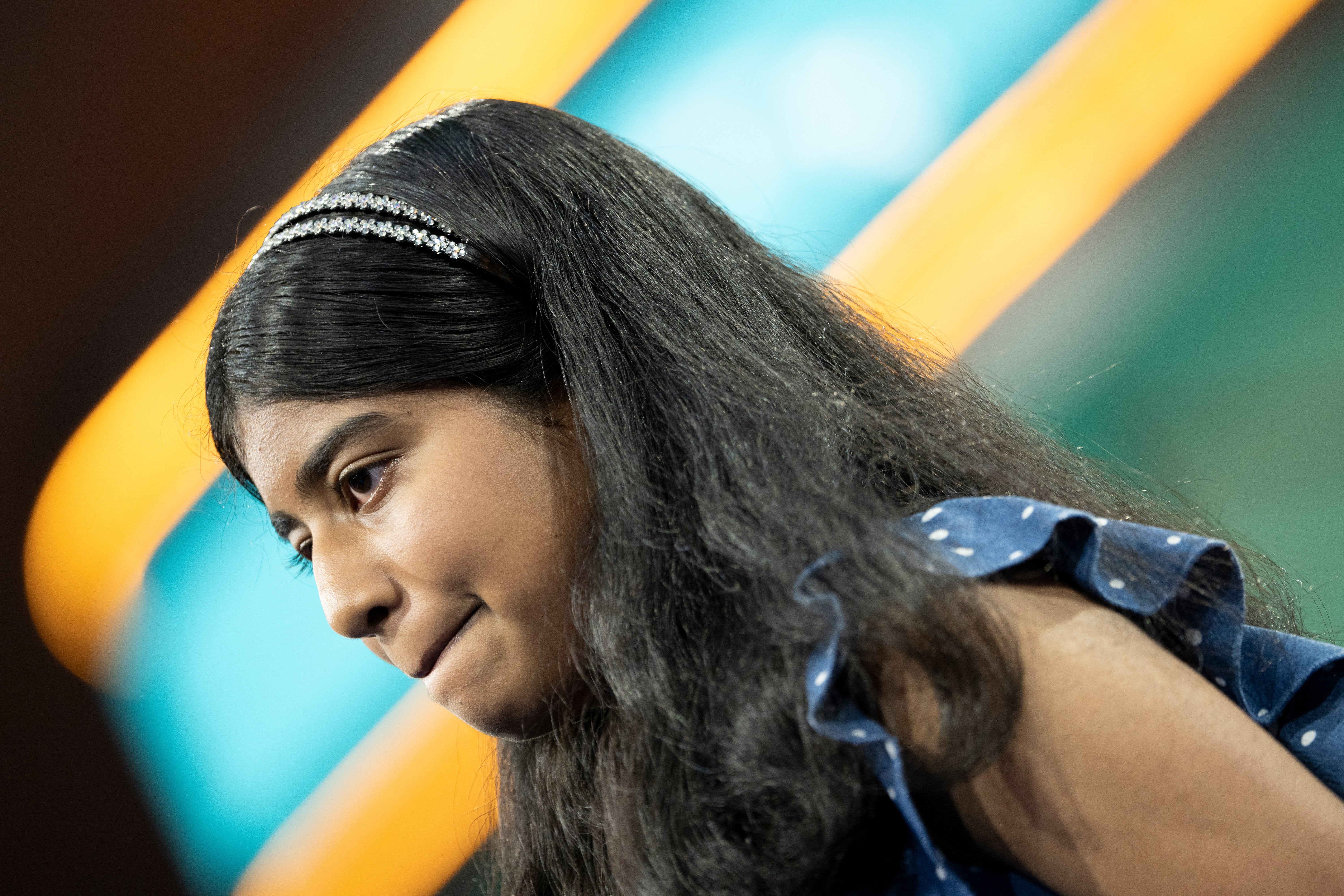
His last loss was in September at the WishWin senior spelling bee. He misspelled “Gloucester,” a cheese named for the city in England. He said he knew the city but didn’t know it was also a cheese, and he guessed “glaucester.”
“After that, I guess I just went on a winning streak,” he said.
Bruhat said there was one word Thursday night he didn’t know: “tennesi,” a monetary unit of Turkmenistan. Ananya Prassanna got that one right during the most diabolical round of the bee, when every word had an unknown, obscure or nonexistent language of origin. The 13-year-old from Apex, North Carolina, finished in a tie for third.
Bruhat is the second straight champion from the Tampa Bay area, and his victory means 29 of the last 35 spelling champs have been Indian American. His parents immigrated from the southern Indian state of Telangana, a region that’s well-represented among the run of Indian American champions and contenders that began in 1999.
Nupur Lala was the winner that year who inspired a generation, especially after her triumph was featured in the documentary “Spellbound.” Now a neuro-oncologist, Lala returned to the bee this year for the first time in a decade.
Bruhat’s victory was also a proud moment for a previously unknown former speller-turned-coach: 16-year-old Sam Evans, who worked with three of the top four finishers. He also tutored Faizan and Shrey, a 12-year-old from Rancho Cucamonga, California. Both are sixth-graders and have two years of eligibility left.
Evans was frequently astonished by Bruhat, saying his pupil could remember any word he saw and that once he missed a word, he’d never get it wrong again.“He always says he’s nervous, but he doesn’t look nervous, like most of them look nervous,” Evans said. “I can’t explain that. I don’t know how he does it.”







